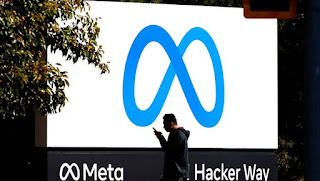Beware of Counterfeit ChatGPT and Bard Advertisements on Facebook!
Beware of Counterfeit ChatGPT and Bard Advertisements on Facebook!
Exploiting the burgeoning fascination with generative AI, cybercriminals have unleashed a plethora of misleading ads on Facebook, touting counterfeit ChatGPT, Google Bard, and other chatbots. Their aim? Alluring unsuspecting victims into downloading nefarious software.
While app stores like the Play Store and App Store have been inundated with contaminated imitations of ChatGPT and Bard, malevolent hackers have also set their sights on social media, particularly Facebook. Astute researchers from Check Point Research (CPR) have unearthed a sweeping scam that targets users, enticing them to download malicious software by fabricating fake pages and ads for sought-after AI brands, including ChatGPT, Google Bard, Midjourney, and Jasper. These pernicious programs have the ability to pilfer passwords (banking, social media, gaming, etc.), cryptocurrency wallets like Zcash, Bitcoin, and Ethereum, and any data stored in the victims' browsers.
The deceptive pages engineered by these criminals sport names like Bard for Business V3, Smartgpt4.com,Bard AI for Business,and Mid-Journey AI.To compound matters, these pages are endorsed and promoted by Facebook itself. Users are goaded into liking or commenting on the posts, unknowingly contributing to the dissemination of these spurious pages across their social networks. The credibility of these pages is bolstered by their substantial number of followers and the copious comments and reactions, often numbering in the thousands.
The malefactors promote fresh services or exclusive content using links. For instance, they extol the virtues of Bard version 2, purportedly capable of composing music, editing videos, and generating images. Additionally, they entice users with links to an alleged free version of Midjourney, even though the generative image AI is, in reality, a paid offering. Users who click on these links are redirected to web pages where they unwittingly download malicious software, with the pages or groups alternating between authentic and deceitful links.
To elude falling into their trap, it is imperative to adopt certain security measures. Scrutinizing the domain names used by phishers is of paramount importance, as they often feature minor yet plausible spelling deviations. Additionally, it is advised to solely download software or extensions from reputable sources, eschewing any such activity on Facebook pages, groups, forums, or through messages. Opting for official websites or credible media outlets is the prudent course of action in this regard. Finally, verifying links using phishing verification tools can prove to be exceedingly beneficial.
Vigilance is the watchword in dealing with these increasingly astute cybercriminals. Refrain from being beguiled by enticing fraudulent ads and safeguard yourself against the malevolent software masquerading behind these false ChatGPT and Bard entities. Stay cautious, and apprise your dear ones to prevent their unwitting entrapment in these artful snares.





